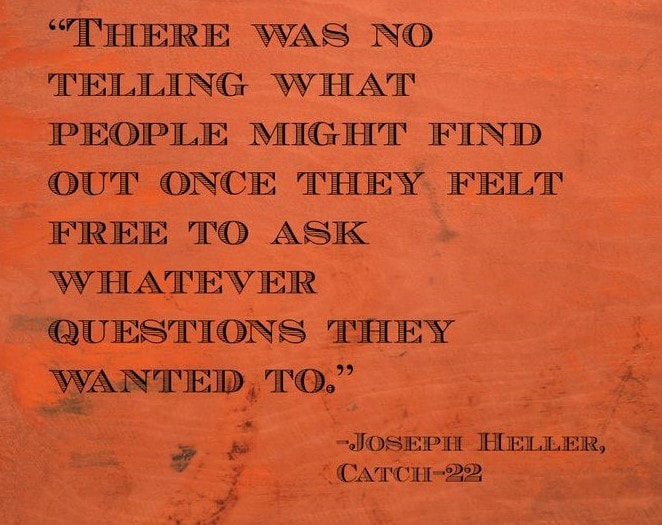|
It’s hard work setting up a business. Research shows moving from start-up to scale up presents new and equally demanding challenges. High growth organisations face challenges in recruiting the right talent to meet their growing needs, developing the leadership to continue to inspire and steer the organisation, the perennial access to finance issue and the need to create the right structure and culture capable of delivering the vision.
As more businesses become clearer about their vision and commitment to values, so more start-ups seem to reach a situation where a choice needs to be made. Many make the decision to stay small so that they do not compromise their values. Others sell out to larger organisations, checking out before the original vision is compromised. But there is another way. I have recently been working with a small company committed to sustaining great relationships and flexibility for its staff and delivering high-quality services for its customers. Supporting people with disabilities at home, and in hospitals and schools; this company also wanted to make its services accessible to everyone it could it make a difference to. Growth was in line with its values and essential to delivery of its purpose. This company could not stay small and align with its values, it could not limit its growth and fulfil its purpose. On the other hand, the co-founders were adamant that they did not want to develop into a hierarchy with layers of management, bureaucracy and tomes of policies and procedures. This was not what they were about. They were at a crossroads and took the brave decision to find another way that would promote sustainable growth, align with their values and help them live the meaning of their organisation. Taking a new approach to developing an operating system and organisational design that intentionally creates the culture you want and promotes the values you founded your business on, is a realistic and prudent option. There are now thousands of organisations adopting self-managing techniques and creating their own non-hierarchical organisational structures. Asking new questions, they find answers to attracting, growing and retaining the right people, being agile and remaining relevant to their customers, staying true to the original purpose and therein delivering the real value of the business. They found that all can be more successfully delivered by adopting these new ways of working and growing their organisation. Entrepreneurs are by nature innovative problem solvers, adept at creating new opportunities. It’s vital to embrace innovation and seek new solutions in all aspects of your enterprise. There is a huge opportunity for growing businesses to exploit by adopting these new operating systems and agile structures. Time to ask the new questions, how can I stay true to my values and grow a successful business? Lots of growing businesses are already finding out. Values based recruitment? Only if you mean it. Values based recruitment is becoming an increasingly popular practice. It’s been around for a while now in health and care and lots of other industries too. Charities such as Skills for Care offer toolkits and support. The NHS offers its own guidance and organisations like NHS Employers offer similar resources and services. It must be a good thing, right? Organisations using these methods report many benefits including improved staff morale, lower sickness and absence rates and better quality of services provided. Skills and knowledge can be developed once someone is in the job. Knowing that a new employee shares the values of the organisation and will fit well into the team culture is surely something worth putting time and resources into.
I think value-based recruitment is an amazing thing. I experience great joy working with organisations to develop and deliver values-based recruitment approaches. There is nothing more satisfying than working with a group of people and being confident that the organisation has got the right person for the job and the person has got the right organisation for them. It’s as much about the person choosing the organisation as the organisation choosing the person. Its wonderful to see people grow and develop in an environment where they can flourish, and I believe values-based recruitment can provide a great start to enable this to happen. As this language and practice becomes more popular I would add a caution. As an organisation and a leader you must really mean it. As an organisation its worth spending time and effort considering your values. Are they relevant? Are they alive in your organisation underpinning the decisions and demonstrated by actions and behaviours? Your values statement must be authentic and as a leader you must live it. The dark side of this practice is recruiting staff to your espoused values and then failing to deliver. In health and care the values we look to align are our core or focus values. These are the ones that when fulfilled provide meaning to our work. Values change depending on our age, experiences and circumstances but some remain more constant and are rooted in our upbringing and culture. These values are the ones that when transgressed are likely to provoke us to shout back at the television, to dislike someone or be extremely angry with them. When someone is recruited on a values basis to an organisation, they believe that they share values. The organisation offers them a vision of a world the person aspires to be part of. They expect to experience their core values in their day to day work. When the organisation fails to deliver this the effects are devastating. As a coach, the people I support to make decisions about career future where core values have been transgressed are the most angry and bereaved. When organisations do not deliver on values-based promises people feel utterly betrayed. This is dreadful for the employee and damaging for the organisation. These people do not forget their experiences and sometimes do not forgive easily. Values based recruitment is amazing if executed sincerely based on authentic values which the organisation is truly committed to. If not, then please don’t use this as the latest marketing tool to attract new staff in a demanding market. The results are cruel and messy.
Thinking about the disengagement many health and care organisations are struggling with at the moment I took the opportunity of a long journey to revisit Brene Brown. She has some useful thoughts. When I think about the cultures of many health and care organisations and the belief and value systems of powerful groups that work within them, there is a discomfort with the spiritual and the emotional. In health care we are beginning to accept the health promoting power of communities and recognise the destructive impact of loneliness and isolation for the people we support and care for. We are much less able to recognise and embrace the potential of emotions and spirituality in our staff and our leaders.
Brene argues that it is vulnerability that is the core of all of our emotions. By walking away from our vulnerability we walk away from emotion which is what brings meaning to our lives and work. Vulnerability, she argues, is what we need to do difficult things well. When we have difficult conversations with our colleagues and the people we support and care for from a place of vulnerability we make real connections, enable new possibilities and make a difference. When we recall instances where we have made a real difference to the lives of our colleagues and the people we support and care for we can often identify how we took the risk and courageously showed up as our real selves. Many organisations are struggling with situations where this courage is lacking. Staff experience a disconnect between their values, often the values they thought they shared with their organisation, and the way they experience their work and organisational leaders. They experience shame, believing they are not good enough and their organisation is not good enough. When staff work for organisations like the NHS, personal pride and identity is often closely tied to the reputation of the organisation they are part of. Being told by public leaders and the media that the organisation is not good enough, that it is failing the people it intends to serve, is a message that has been taken on board personally by many staff. Brene also identifies the impact of comparison and how this can limit our creativity and enforce a very narrow standard that excludes many of us and cannot meet diverse needs. As I think about our preoccupation with comparing ourselves across and within health and care organisations I can see that this is true. Staff who have a deep understanding of what is important to and needed by the people they support are denied the opportunity to create new ways of working and delivering what’s needed as practices and ideas are transplanted from other “more successful” places. So if we revisit Brene and apply what she has to say, what would it be like? We would intentionally create organisations where our emotional and spiritual selves are valued and we are supported to be vulnerable. Places where our courage to be vulnerable and do difficult things with authenticity is recognised and celebrated. Where the need to be perfect is not allowed be the enemy of good. Organisations where we make comparisons to learn not to shame, and to help us consider who we have excluded. Where we can talk about the guilt of making a bad decision or doing the wrong thing from a place of vulnerability not shame so that we can learn and grow. We would create cultures where we can “Dare Greatly”. Where, as Brene would encourage us to do, we consider not what we would do if we couldn’t fail but what’s worth doing even if we do fail?
Inspired by Brene Brown (and airport delays!)
https://www.penguinrandomhouse.com/books/310307/daring-greatly-by-brene-brown/9781592408412/
I had an unexpected childhood. In the early 1970s my father left his respectable and secure job in a nationalised industry and headed off to university. It wasn’t until I was going through some of his books after he died and came across a passage he had marked about education for education's sake, that I began to appreciate why he had taken this decision. As a student at Ruskin College Oxford, Ruskin’s concept of education as “leading human souls to what is best, and making what is best out of them.” was a core aspect of his motivation to become an educator. In the 1970s it was not done to leave a good job and pursue an uncertain future, especially if you were already in your thirties with a young family to support. I will never know what made him realise that the steady job would not be steady for much longer or what gave him the courage to pursue what was really important to him. I do know that it delivered financial stability and despite its challenges, I think it delivered real job satisfaction too.
My father’s actions were unusual at the time but now his story seems much more familiar. There are a number of recent pieces of US and UK research recording how most of us will have a number of jobs with an increasing number of employers during our working lives. The Association of Accounting Technicians research in 2015 interviewed 2000 people and found that 46% would change their career completely after finding their current path wasn’t for them. It is much written about that millennials and younger people in the workforce expect much more than a wage packet as fair recompense for their labour. Our relationship with work is more complex and sophisticated than it used to be. Whilst income is important; job satisfaction, well-being, work-life balance, development opportunities and working for an employer that demonstrates social responsibility and where we feel proud to be part of the organisation are also key. It is now recognised that being able to align our personal values and motivations to that of our business or employer is vital to productivity. When we are not fully engaged with our jobs, when we are not convinced our job is worth doing, when we don’t feel we are making the best of our talents, or being enabled to do the best job we can, we are less efficient and the quality of our work suffers. The CMI Quality of Working Life Report 2016 found motivation was becoming an increasing challenge for managers, 28% reported feeling not very motivated or not motivated at all. Over a third of public sector managers reported feeling demotivated and working at less than 70% productivity. More now than ever, it’s important to have a clear understanding of what motivates and drives us and how we can align this in our work to do a job worth doing and do it well. The fast changing world of work and business means that we need to accept that the "what" and "how" of our work will change frequently. We must have a deep understanding of the "why" in order to provide the compass to navigate our future career path and deliver satisfaction, well-being and success. This article was inspired by Lani Morris https://www.greenleaf-publishing.com/the-map-of-meaning |
AuthorJane Pightling has experience across the public, private and charitable sector. Through her work in the NHS Leadership Academy and her consultancy Evolutionary Connections she developed complex systems leadership capacity, providing training, coaching programmes and establishing networks and communities of practice to sustain learning. She maintains her social work registration and her commitment to person centred and community focused approaches. Jane has a deep interest in the potential offered by new ways of working, designing and building organisations and communities that can best deliver this kind of service. She works with organisations and leaders to develop approaches that design in autonomy, wholeness and purpose. Archives
October 2021
Categories
All
|






 RSS Feed
RSS Feed